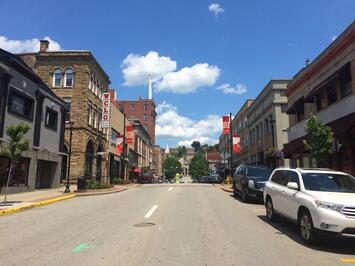
The summer recess is approaching and I would like to suggest an extra-curricular activity for college students: go somewhere different, away from campus, somewhere unlike home, and talk to new people who have had appreciably different life experiences. And once there, listen, learn, and attempt to empathize with what you are hearing and seeing.
I hope that these students quickly realize that their worldviews have been severely distorted by being on campus and see that, in reality, so many Americans remain quite reasonable and measured.
The sad reality is that recent and current college students have not had a real taste of American society whatsoever. Many have been isolated and lived a significant portion of their adolescent lives through the bubbles and extremes of social media and via digital connections thanks to the COVID-19 pandemic. Coming back to campus after the pandemic lockdowns, the same students have had to confront deep polarization and extremism cultivated by activist administrators and faculty in their classes, dorms, and student social spaces. These administrators and employees have sought to balkanize collegiate communities under the guise of diversity, equity, and inclusion. Their efforts have created unending conflicts between “oppressors” and “the oppressed,” making every facet of college life now contentious and political.
On top of this, students are managing the impact of the Israel-Hamas War, which began due to the massacre of over a thousand Israelis by a known terrorist group in October 2023. The Israel-Hamas War has thrown higher education into the midst of a firestorm. Many campuses are engulfed with protests and violence led by antisemitic administrators and students who are making demands that run counter to American values and ideals. The protests have shut down any sense of normalcy and fun that used to dominate collegiate spring semesters.
It is understandable, then, that so many students today are unhappy and anxious; they have not seen how communities can or have united and organized to solve problems or work collaboratively. And the students know little of good government, having matured and come of age in a time of extreme politics fueled by hate and anger.
After the chaos of the academic year, students should explore the world outside of their campuses and homes; they need a dose of reality.
I recently visited Chambersburg in Franklin County, Pennsylvania, which was far more centrist and blue than when David Brooks visited in 2001 and said the city typified Republican Red America. The Chambersburg was mixed with hallmarks of liberal cities— good sushi, bookstores, considerable ethnic diversity, and coffee shops—as well as conservative bastions such as a large farming industry and dollar stores. Brooks may have oversimplified his description, but what he was right about was that residents in Franklin County “place tremendous value on being agreeable, civil, and kind. They are happy to sit quietly with one another…They value continuity and revere the past. They work hard to reinforce community bonds.”
Read the rest of this piece at AEI.
Samuel J. Abrams is a profesor of politics at Sarah Lawrence College and a nonresident senior fellow at the American Enterprise Institute.
Photo: via Wikimedia under CC 4.0 License.
==============












